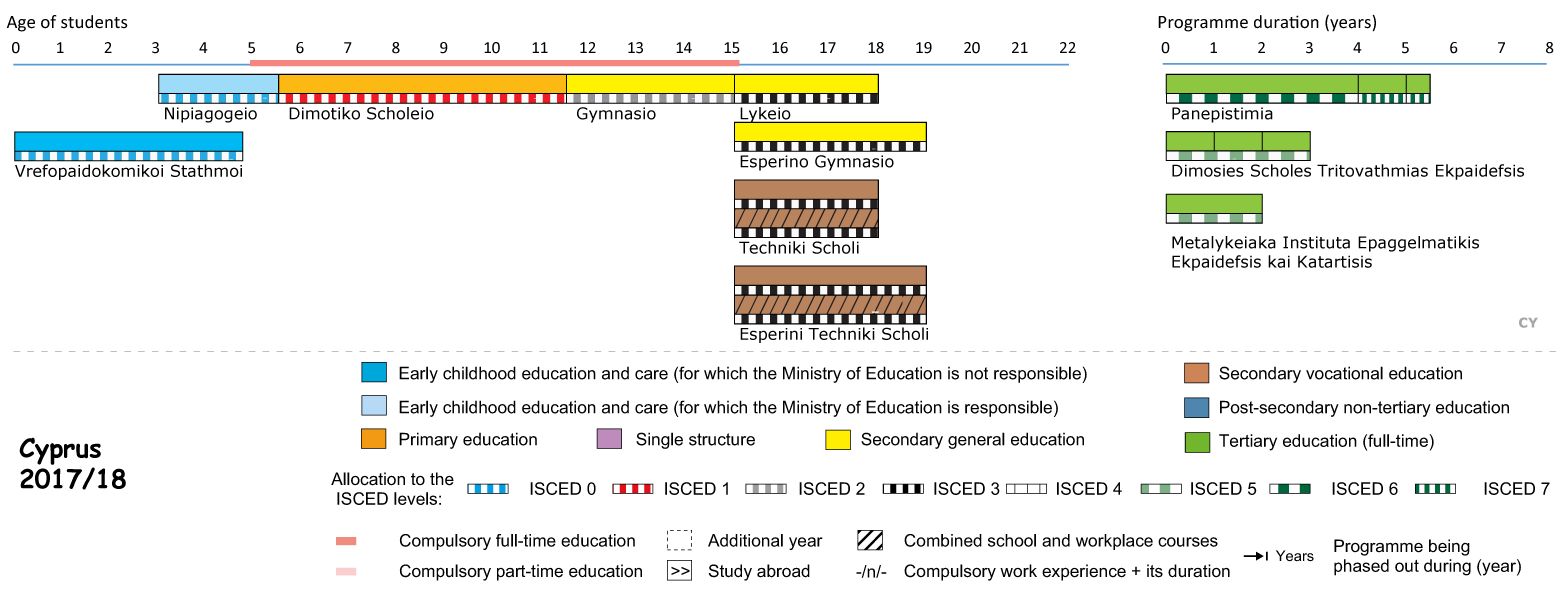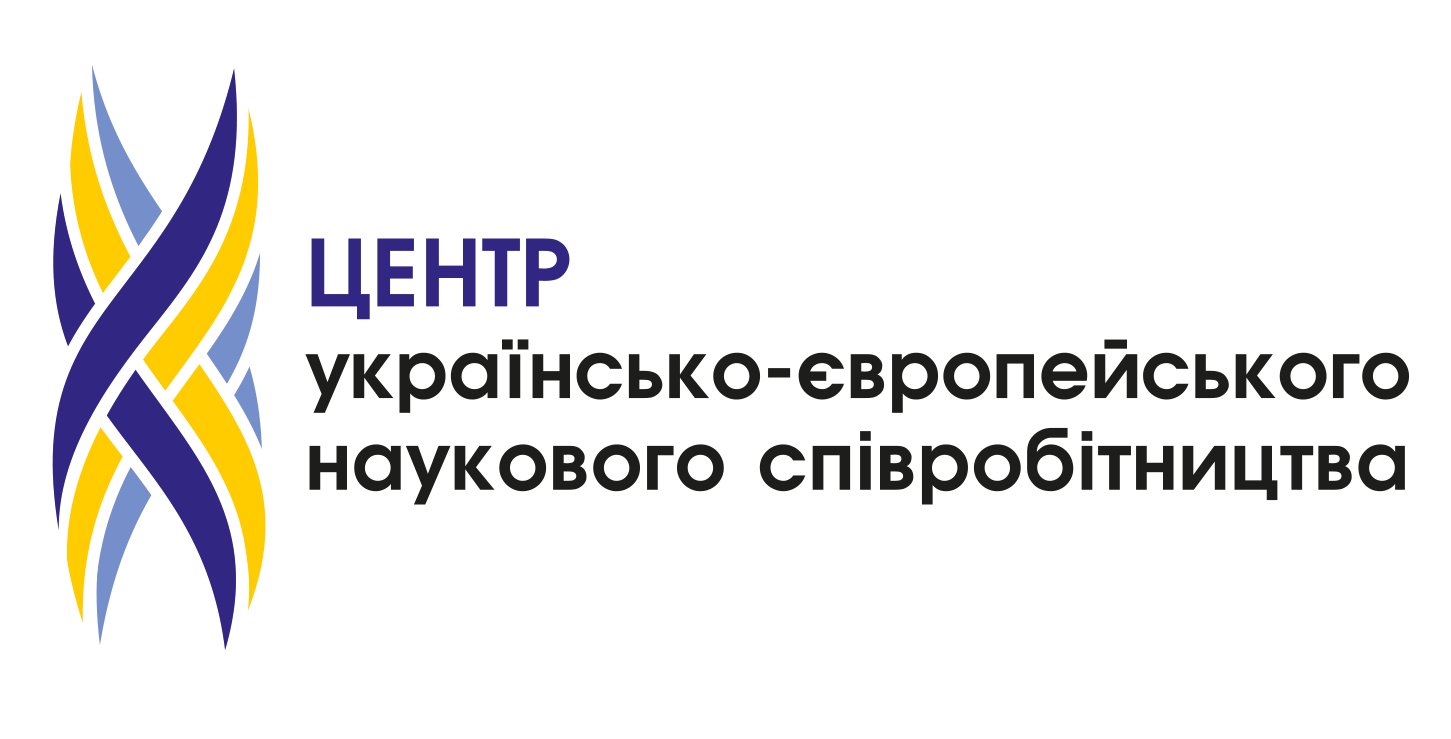 Key features of the Education System
Key features of the Education System
The right to education: Article 20 of the Constitution states that every person has the right to receive and every person or institution has the right to give instruction or education, provided that it will be in accordance with the Republic’s laws.
Compulsory education: Compulsory education lasts for ten years and extends from the age of 4 years and 8 months (pre-primary education) to the age of 15 years (end of lower secondary education).
Free education: Public education is free for all students in the age range of 4 years and 8 months to 18 years. Textbooks are also given to both students and teachers free of charge.
Public tertiary (non-university level) education is also free.
Public higher education (undergraduate level) is basically free for Cypriots and EU citizens, as the Government fully pays the fees which the Councils of the universities set. International undergraduate students from out with the EU countries pay fees.
Postgraduate students, Cypriot or international, pay fees set by the Council of Ministers.
Adult education offered in public institutions is to a large extent free. However, a large number of training courses, mostly offered by private or semi-government organisations, involve fees.
Governance: National legislation sets the aims and principles of education, the regulations of operation of schools or other educational institutions, examinations, funding and staff related issues.
Education governance is centralised with the following bodies exercising control over education:
- The Council of Ministers: This is the highest authority in policy making in education.
- The Ministry of Education and Culture: Overall responsibility for education rests with the Ministry of Education and Culture. It is responsible for the administration of education, the enforcement of educational laws and the implementation of educational policies, the preparation of the education budget and educational bills and the construction of school buildings. It also sets out curricula, syllabuses and textbooks.
- The Education Service Commission: This is an independent, five-member body, appointed by the President of the Republic for a six-year term. It is responsible for appointments, secondments, transfers, promotions and discipline (including dismissal) of teachers and school inspectors.
- The Local School Boards: These are responsible for the maintenance and equipment of the school buildings in collaboration with the Department of Technical Services of the Ministry of Education and Culture.
Autonomy: As a result of centralisation in education governance, autonomy is very limited at the school education level. Only a few elements of decentralisation can be identified at the school unit level, such as the teachers’ autonomy in regards to the teaching methods they use in their class; or the head-teachers’ right to manage a small budget for extra expenses of the school unit (e.g. light equipment).
At the higher education level, universities are academically autonomous bodies. Public universities are fully self-administered public corporate bodies. The Council of the universities is responsible for the management and control of their financial affairs.
Stages of the Education System
Early childhood education and care is organised on
- The pre-school system;
- The pre-primary system.
The pre-school system comes under the remit of the Ministry of Labour, Welfare and Social Insurance and it involves day nurseries (vrefopaidokomikoi stathmoi), where care and supervision is offered to children under the age of three.
The pre-primary system comes under the remit of the Ministry of Education and Culture and it involves kindergartens (Nipiagogeio). It concerns children in the age range of 3 years to 5 years and eight months.
Primary education is provided in primary schools (Dimotiko scholeio) and it comprises a six-year course of general education beginning at the age of 5 years and 8 months.
Lower secondary education is provided in the lower secondary education schools (Gymnasio) and it comprises a three- year course of general education beginning at the age of 11 years and 8 months.
Upper secondary education involves a three-year cycle which begins at the age of 15 years and is offered in two different types of programmes:
- The upper secondary general education programmes;
- The upper secondary technical and vocational education programmes.
The upper secondary general education schools are called lyceums (Lykeia) and their programmes include both common core subjects and optional subjects of specialisation.
Secondary technical and vocational education (STVE) is offered in the technical schools (Technikes scholes). The STVE programmes include formal technical and vocational education offered in two streams – the theoretical stream and the practical stream. The apprenticeship scheme, which involves combined school and workplace courses, is also included in the programmes of the technical schools.
Post- secondary non tertiary education is offered to graduates of secondary education (18+ years old), at the Post- Secondary Institutes of Vocational Education and Training (Metalykeiaka instituta epaggelmatikis ekpaidefsis kai katartisis – MIEEK). The MIEEK offer two- year duration programmes of further vocational education and training.
Higher education is offered in public and private institutions, both at the university level (Panepistimia) and the non-university level (Scholes tritovathmias ekpaidefsis).
Adult education is the responsibility of both, the Ministry of Education and Culture and the Ministry of Labour, Welfare and Social Insurance. It is offered in the form of formal education, non-formal education and vocational training, either in public institutions, or by semi-government or private organisations.
Special education is provided in mainstream schooling for the vast majority of pupils with special needs. In case full-time attendance in a mainstream class is not appropriate for the child’s needs, special tuition in a resource room for specified periods per week may be recommended or, alternatively, attendance at a special unit within a mainstream school. If neither is considered suitable, the child is recommended to attend a public special education school.
Second chance education is offered in evening schools, called evening gymnasia (Esperina gymnasia) and evening technical schools (Esperines technikes scholes), which offer four- year duration programmes to early school leavers (15 – 19 years old).
Structure of the National Education System
Resource: https://eacea.ec.europa.eu/national-policies/eurydice/content/cyprus_en










